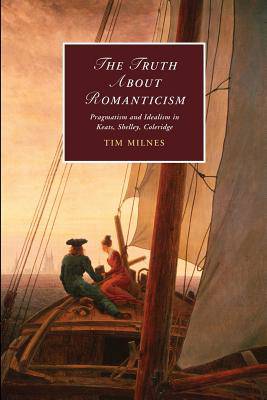
Je cadeautjes zeker op tijd in huis hebben voor de feestdagen? Kom langs in onze winkels en vind het perfecte geschenk!
- Afhalen na 1 uur in een winkel met voorraad
- Gratis thuislevering in België vanaf € 30
- Ruim aanbod met 7 miljoen producten
Je cadeautjes zeker op tijd in huis hebben voor de feestdagen? Kom langs in onze winkels en vind het perfecte geschenk!
- Afhalen na 1 uur in een winkel met voorraad
- Gratis thuislevering in België vanaf € 30
- Ruim aanbod met 7 miljoen producten
Zoeken
€ 64,95
+ 129 punten
Uitvoering
Omschrijving
How have our conceptions of truth been shaped by romantic literature? This question lies at the heart of this examination of the concept of truth both in romantic writing and in modern criticism. The romantic idea of truth has long been depicted as aesthetic, imaginative, and ideal. Tim Milnes challenges this picture, demonstrating a pragmatic strain in the writing of Keats, Shelley and Coleridge in particular, that bears a close resemblance to the theories of modern pragmatist thinkers such as Donald Davidson and Jürgen Habermas. Romantic pragmatism, Milnes argues, was in turn influenced by recent developments within linguistic empiricism. This book will be of interest to readers of romantic literature, but also to philosophers, literary theorists, and intellectual historians.
Specificaties
Betrokkenen
- Auteur(s):
- Uitgeverij:
Inhoud
- Aantal bladzijden:
- 268
- Taal:
- Engels
- Reeks:
- Reeksnummer:
- nr. 83
Eigenschappen
- Productcode (EAN):
- 9781107643901
- Verschijningsdatum:
- 19/12/2013
- Uitvoering:
- Paperback
- Formaat:
- Trade paperback (VS)
- Afmetingen:
- 152 mm x 229 mm
- Gewicht:
- 362 g

Alleen bij Standaard Boekhandel
+ 129 punten op je klantenkaart van Standaard Boekhandel
Beoordelingen
We publiceren alleen reviews die voldoen aan de voorwaarden voor reviews. Bekijk onze voorwaarden voor reviews.









